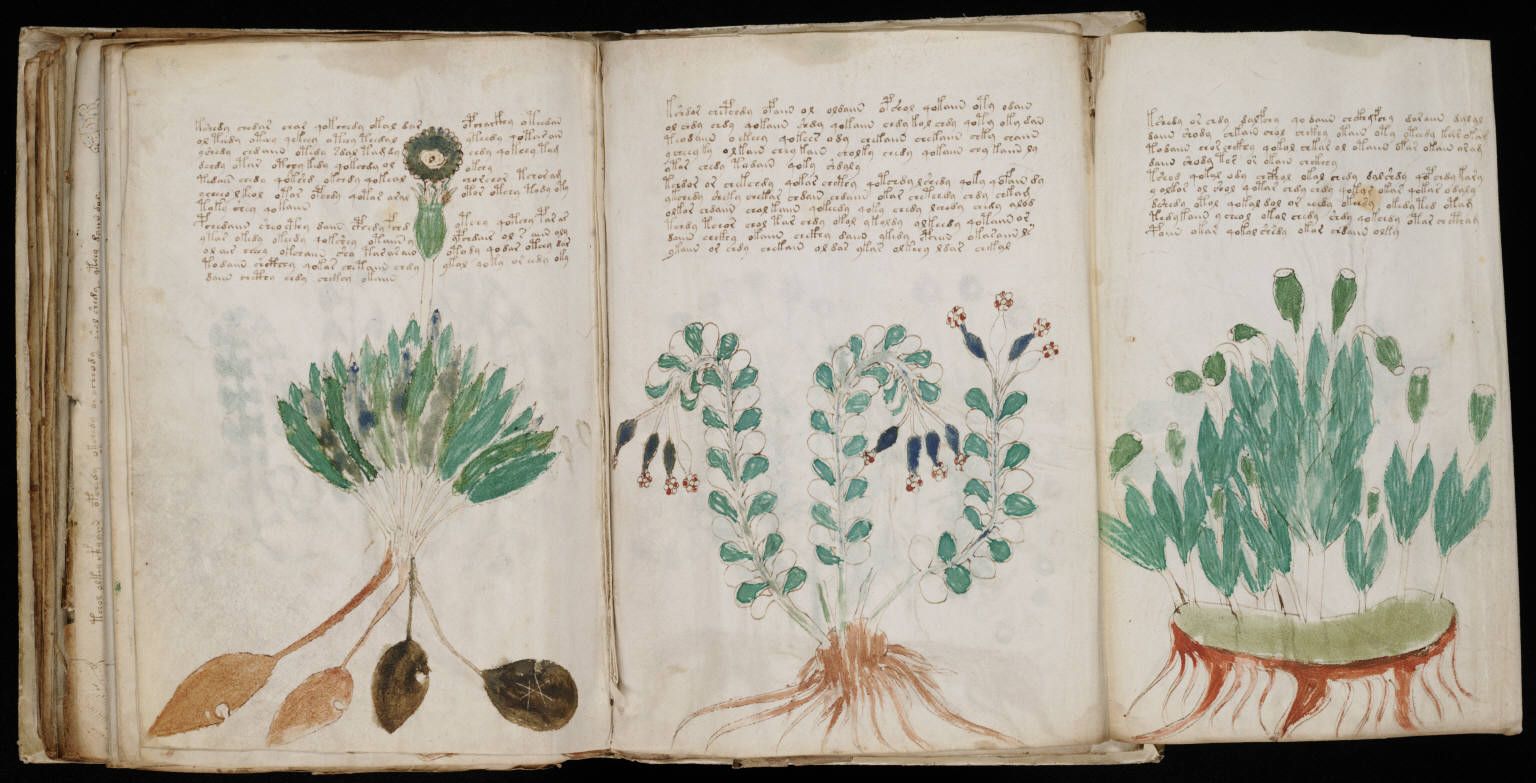
A mysterious ancient text that's defeated generations of human translators might have finally been decrypted by artificial intelligence.
The Voynich manuscript is famous for being indecipherable. The 240-page text is written in an unknown language, in an unknown script, scrambled by an unknown code, as CTVNews put it. It's a puzzle with no way in. Even the Bletchley Park cryptographers, renowned for cracking the Enigma code used by the Nazis during World War II, couldn't make any headway.
Now, Greg Kondrak, a computer scientist in the AI lab at the University of Alberta—the same one behind the DeepStack system that made waves last year by beating professional poker players—claims he's begun to crack it open.
"Once you see it, once you find out the mystery, this is a natural human tendency to solve the puzzle," Kondrak told CTVNews. "I was intrigued and thought I could contribute something new."
Step number one, Kondrak told CTVNews, was figuring out what the language is. The statistical algorithms he and his co-author designed proved about 97-percent accurate when translating the United Nations Universal Declaration of Human Rights (into 380 languages). The same process, applied to the Voynich manuscript, suggested the language was Hebrew. As for the code, they believe that it involves the letters in each individual word being shuffled, and their vowels dropped.
According to their algorithms, the manuscript's first complete sentence reads, "She made recommendations to the priest, man of the house and me and people." They also believe the text includes the words "farmer," "light," "air" and "fire," according to CTVNews.
Carbon dating places the manuscript's creation around the early 15th century. Experts been trying and failing to decipher it since 1912, when a rare books dealer found it in a Jesuit library collection in Italy. It's possible that it pertains to women's health, according to CTVNews. In addition to dozens of bathing, naked women, the illustrations feature celestial bodies like stars and planets, plus various species of plants (recognizable and otherwise). Some of the diagrams resemble Zodiac signs, according to CTVNews.
Excitement rippled across the internet when an expert claimed to have deciphered the Voynich manuscript in 2017—only to fizzle when it turned out everyone had been fooled, according to ArsTechnica.
I've yet to see a medievalist who does. Personally I object to his interpretation of abbreviations.
— Dr Kate Wiles (@katemond) September 7, 2017
The Voynich manuscript is so enticing that it's formed an insular, devoted community of would-be translators who are skeptical of outsiders, according to the Atlantic. Kondrak told CTVNews that his work had been somewhat less-than-warmly received.
"I don't think they are friendly to this kind of research," Kondrak told CTVNews. "People may be fearing that the computers will replace them."
But while the ability of AI to translate encoded messages unsupervised is advancing exponentially, Kondrak said that the Voynich manuscript's complexity still requires a complementary human translator.
"Somebody with very good knowledge of Hebrew and who's a historian at the same time could take this evidence and follow this kind of clue," Kondrak told CTVNews. "Can we look at these texts closely and do some kind of detective work and decipher what can be the message?"
Uncommon Knowledge
Newsweek is committed to challenging conventional wisdom and finding connections in the search for common ground.
Newsweek is committed to challenging conventional wisdom and finding connections in the search for common ground.
About the writer
Kastalia Medrano is a Manhattan-based journalist whose writing has appeared at outlets like Pacific Standard, VICE, National Geographic, the Paris Review Daily, ... Read more
To read how Newsweek uses AI as a newsroom tool, Click here.








